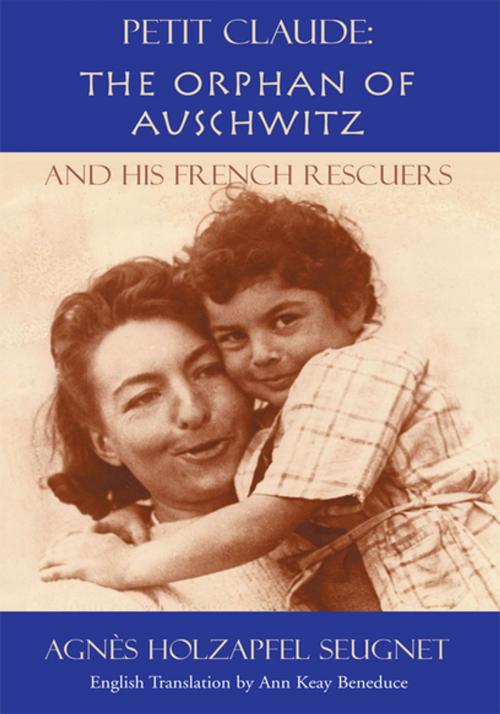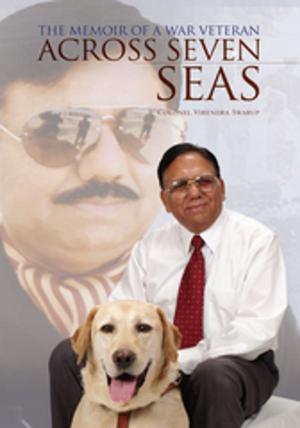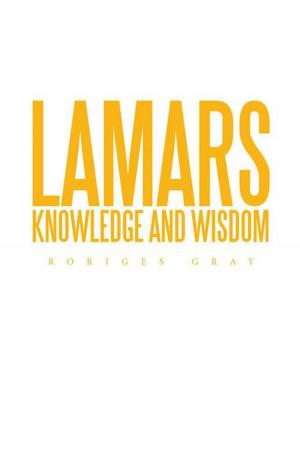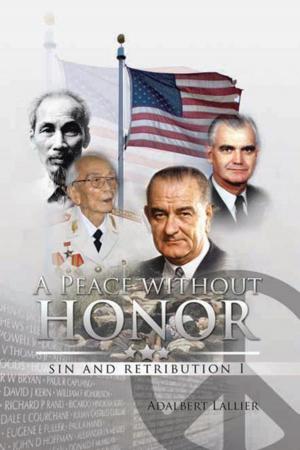| Author: | Agnes Holzapfel Seugnet | ISBN: | 9781465315564 |
| Publisher: | Xlibris US | Publication: | April 26, 2001 |
| Imprint: | Xlibris US | Language: | English |
| Author: | Agnes Holzapfel Seugnet |
| ISBN: | 9781465315564 |
| Publisher: | Xlibris US |
| Publication: | April 26, 2001 |
| Imprint: | Xlibris US |
| Language: | English |
Petit Claude, The Orphan of Auschwitz is the poignant, but also heartlifting true story of a little Jewish boy who was rescued from a Nazi prison and then sheltered in the home of a young French Christian couple. Little Claude Blum - Petit Claude, as he was called then - would never forget his fourth birthday. September 14, 1942 was engraved upon his memory, not because it was celebrated by candles to blow out and wish on, but because that was the day the Gestapo took his beloved mother from the prison at the demarcation line, where they both had been incarcerated, and sent her in a cattle car to Drancy and then to the death camp at Auschwitz. His father was not deported until later, but he also died in the same concentration camp - ironically, just days before the camp was liberated in 1945.
But this was not the end of Petit Claudes story. By a near-miracle, the child was rescued from the prison and spirited away to the south of France, where he was welcomed into the household of a newlywed Christian couple, both still young medical students. The story is told by one of the daughters of this heroic couple. While it goes back to tell of the prewar persecutions of the Blum family, this is essentially the account of how these two families - one Christian and one Jewish - closely linked by their concern for one little boy, lived during the dark years of the German occupation of France.
Lisette and Ernest Holzapfel, Petit Claudes new parents, were already at some risk, as Ernest, who had fled Germany because of his anti-Nazi convictions, was considered an enemy alien in Vichy France despite his having served in the French Foreign Legion. Taking a Jewish child into their home was extremely dangerous, but they never hesitated. Soon Petit Claude, a bright, courageous and affectionate little boy, had totally won their hearts, and they considered him truly their own child. But, at the end of the war, Petit Claudes grandmother, came to find him and took him with her to live in the country which would soon become Israel.
The parting was heart-wrenching. Petit Claude had come to love Lisette and Ernest deeply, and had known his first real security and happiness with them. And for Lisette, his leaving was a wound that refused to heal. Claudes new life in Israel was difficult. His grandmother, though kind and loving, had lived since the war in circumstances so trying that she could not bring up her grandson herself. So Petit Claude, who had quickly become attached to his grandparents, his real family, had to leave and go to live in a kibbutz. Thus he was uprooted a third time. He spent twelve long years in the kibbutz, where he took a Hebrew forename; no longer Claude, he became Uri Blum. Contact with his French benefactors was gradually lost. It was not until nearly fifty years later that the author finally found her long-lost big brother and arranged for him to come for a joyous reunion with Lisette and Ernest in Lyon. Claude/Uri is today, of course, a grown man, with a wife and two grown sons, and a successful career in banking.
In addition to Petit Claudes story, the author tells of the wartime experiences of Lisette and Ernest, and also of Claudes family. Lisette and Ernest joined the resistance movement: Ernest became an underground member of General Charles de Gaulles Free French Forces, which were working with the help of the Allies to overthrow Germany. Those of Claudes relatives who were not deported to die in Hitlers concentration camps, spent the war years in flight and hiding, always in terrible anxiety and danger. Marshal Ptain and some of the infamous collaborators responsible for the deportation and death of thousands of French Jews appear in this account, as well as sadistic Nazi officials like Klaus Barbie. There are heroic figures, too. And the author also describes the experiences of Ernests brothers, who had remained in Germany, and fought in the armed forces of Hitlers Thi
Petit Claude, The Orphan of Auschwitz is the poignant, but also heartlifting true story of a little Jewish boy who was rescued from a Nazi prison and then sheltered in the home of a young French Christian couple. Little Claude Blum - Petit Claude, as he was called then - would never forget his fourth birthday. September 14, 1942 was engraved upon his memory, not because it was celebrated by candles to blow out and wish on, but because that was the day the Gestapo took his beloved mother from the prison at the demarcation line, where they both had been incarcerated, and sent her in a cattle car to Drancy and then to the death camp at Auschwitz. His father was not deported until later, but he also died in the same concentration camp - ironically, just days before the camp was liberated in 1945.
But this was not the end of Petit Claudes story. By a near-miracle, the child was rescued from the prison and spirited away to the south of France, where he was welcomed into the household of a newlywed Christian couple, both still young medical students. The story is told by one of the daughters of this heroic couple. While it goes back to tell of the prewar persecutions of the Blum family, this is essentially the account of how these two families - one Christian and one Jewish - closely linked by their concern for one little boy, lived during the dark years of the German occupation of France.
Lisette and Ernest Holzapfel, Petit Claudes new parents, were already at some risk, as Ernest, who had fled Germany because of his anti-Nazi convictions, was considered an enemy alien in Vichy France despite his having served in the French Foreign Legion. Taking a Jewish child into their home was extremely dangerous, but they never hesitated. Soon Petit Claude, a bright, courageous and affectionate little boy, had totally won their hearts, and they considered him truly their own child. But, at the end of the war, Petit Claudes grandmother, came to find him and took him with her to live in the country which would soon become Israel.
The parting was heart-wrenching. Petit Claude had come to love Lisette and Ernest deeply, and had known his first real security and happiness with them. And for Lisette, his leaving was a wound that refused to heal. Claudes new life in Israel was difficult. His grandmother, though kind and loving, had lived since the war in circumstances so trying that she could not bring up her grandson herself. So Petit Claude, who had quickly become attached to his grandparents, his real family, had to leave and go to live in a kibbutz. Thus he was uprooted a third time. He spent twelve long years in the kibbutz, where he took a Hebrew forename; no longer Claude, he became Uri Blum. Contact with his French benefactors was gradually lost. It was not until nearly fifty years later that the author finally found her long-lost big brother and arranged for him to come for a joyous reunion with Lisette and Ernest in Lyon. Claude/Uri is today, of course, a grown man, with a wife and two grown sons, and a successful career in banking.
In addition to Petit Claudes story, the author tells of the wartime experiences of Lisette and Ernest, and also of Claudes family. Lisette and Ernest joined the resistance movement: Ernest became an underground member of General Charles de Gaulles Free French Forces, which were working with the help of the Allies to overthrow Germany. Those of Claudes relatives who were not deported to die in Hitlers concentration camps, spent the war years in flight and hiding, always in terrible anxiety and danger. Marshal Ptain and some of the infamous collaborators responsible for the deportation and death of thousands of French Jews appear in this account, as well as sadistic Nazi officials like Klaus Barbie. There are heroic figures, too. And the author also describes the experiences of Ernests brothers, who had remained in Germany, and fought in the armed forces of Hitlers Thi















